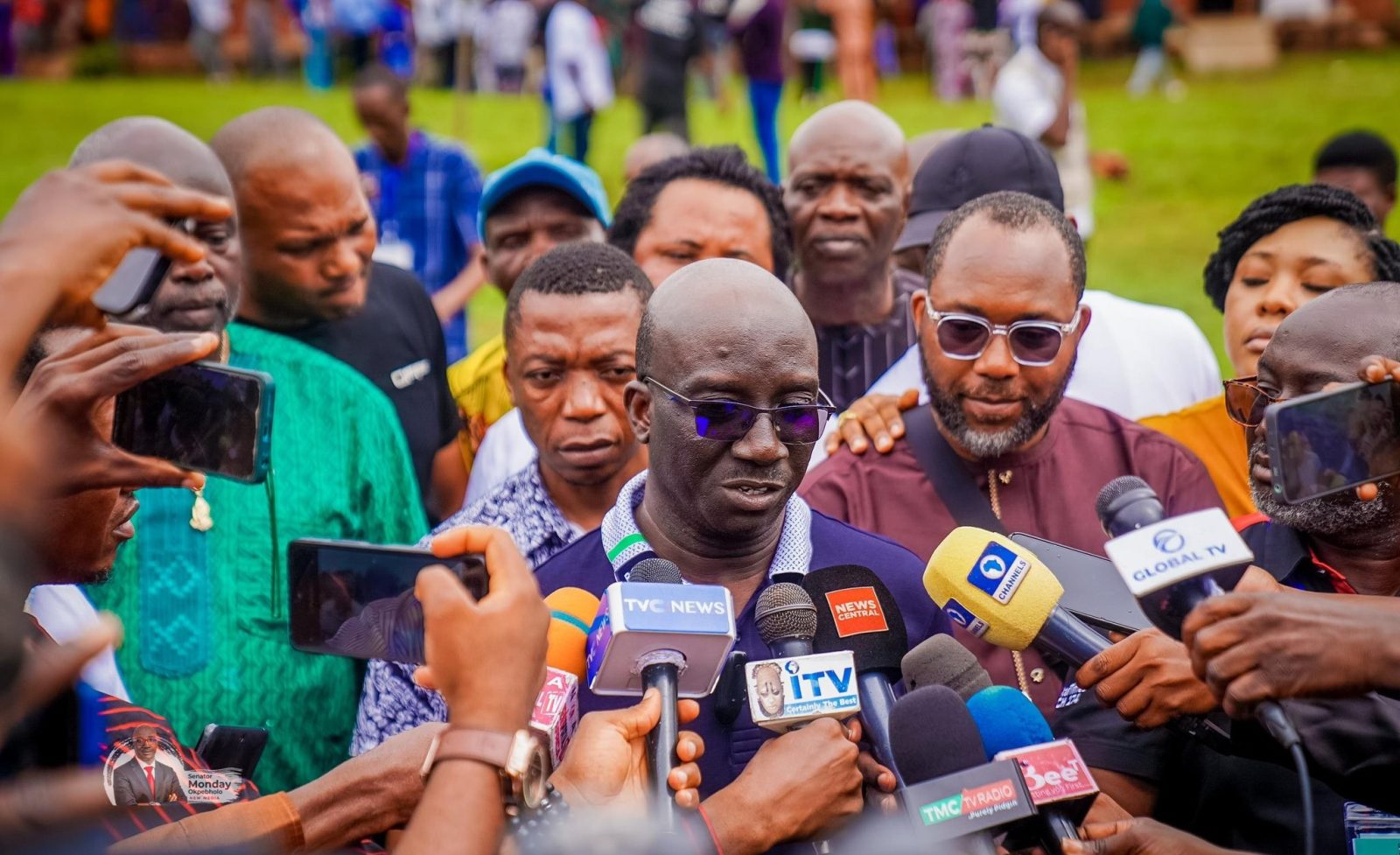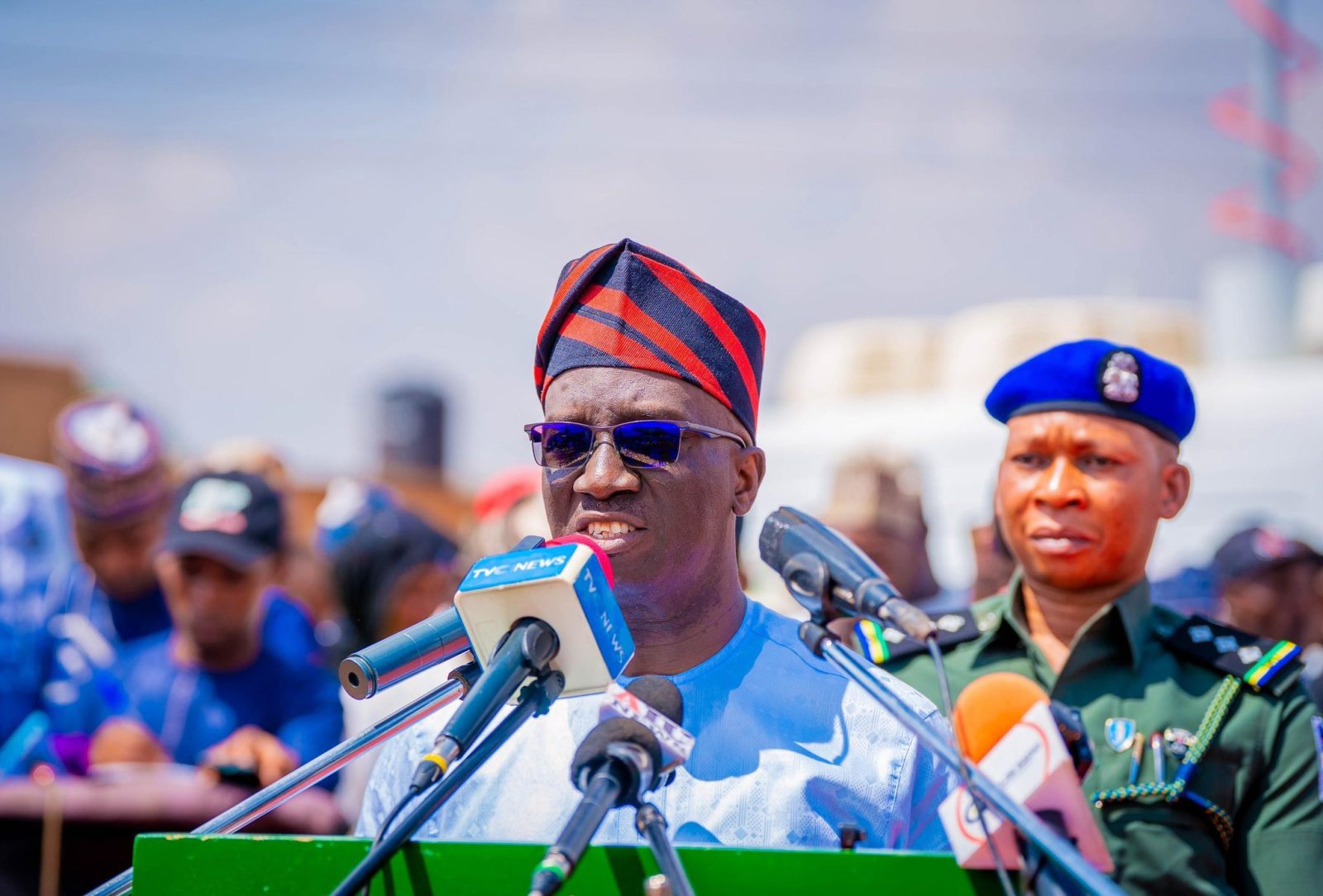The Abacha family, represented by Dr. Maryam Abacha and her son, Mr. Mohammed Sani Abacha, has filed an appeal with the Court of Appeal, challenging the Federal High Court’s earlier ruling on their disputed property in Abuja.
The respondents listed in the appeal include the Minister of the Federal Capital Territory, the Federal Capital Development Authority (FCDA), the President of the Federal Republic of Nigeria, and Salamed Ventures Limited.
In an effort to reclaim the late Abacha’s property located at Plot 3119 Maitama (A6) District, Abuja, the family filed a lawsuit at the Federal High Court in Abuja, representing themselves and the administrators of the late General’s estate.
In the suit, marked FHC/ABJ/CS/463/2015, the plaintiffs claimed that sometime in the ’90s, the late Abacha applied and was granted a certificate of occupancy over a parcel of land at Plot 3119 Maitama (A6) District Abuja, which was revoked by the Minister of the Federal Capital Territory (FCT) via a letter dated January 16, 2006.
The family contested the revocation’s validity and asked the court for relief, asking for either a reversal of the ruling or an order for them to receive just compensation.
Justice Peter Lifu dismissed the suit in his ruling on July 19, citing its filing beyond the statutory time limit and the plaintiffs’ lack of requisite legal capacity.
In their 11-ground notice of appeal, filed by their lawyer, Mr. Reuben Atabo (SAN), Mrs. Abacha and Mohammed faulted Justice Lifu’s judgment and prayed the Court of Appeal to set it aside.
In addition to seeking a reversal of the lower court’s decision, the appellants are requesting the Court of Appeal to nullify the sale of the disputed property to a third party and the subsequent issuance of a certificate of occupancy to the purported buyer.
Furthermore, they are asking the Court of Appeal to exercise its discretion under Section 15 of the Court of Appeal Act to hear and determine the merits of their original case, which was not fully considered by the Federal High Court.
The appellants argued that the Federal High Court erred in dismissing their previous lawsuit (FCT/HC/CV/317/2006) and subsequent appeal (CA/A/197/2010) at the High Court of the Federal Capital Territory (FCT) due to a lack of jurisdiction.
The appellants criticized the trial court for misapplying Section 39 of the Land Use Act to claim that the Federal High Court lacks jurisdiction to hear land recovery cases, which directly contradicts a previous Court of Appeal ruling that specifically designated the Federal High Court as the appropriate forum for their case.
Additionally, the appellants argued that the trial court committed a legal error by unilaterally determining that they lacked the legal standing to represent the estate of the late Gen. Sani Abacha without affording them the opportunity to be heard on the matter.
This, they claimed, violated the fundamental principles of fair hearing enshrined in Section 36 of the 1999 Constitution, which guarantees the right to a fair and impartial hearing.
The appellants argued that, contrary to the trial court’s position, the first appellant (Mohammed) disclosed his status as the eldest surviving son of late General Sani Abacha, while the second appellant, Mrs. Abacha, equally disclosed her capacity in the suit as the widow of late General Sani Abacha.
Mrs. Abacha and Mohammed argued that they had the necessary legal capacity to initiate the lawsuit, with or without letters of administration, regarding the property of the late General Abacha.
They also challenged the trial court’s decision that their suit was time-barred, asserting that the court overlooked exceptions to the applicability of the statute of limitations.
The appellants noted that their originating summons leading to the appeal was filed at the Federal High Court on May 25, 2015, after the Court of Appeal’s decision of May 18, 2015, adding that the lower court failed to disclose in his judgment when their cause of action lapsed.
The appellants also criticized the lower court for acknowledging Salamed Ventures Ltd. as a legitimate party despite allegedly acquiring title to the disputed property while the case was still ongoing.
They argued that, according to established legal principles, a party to a lawsuit cannot transfer ownership of the disputed property to a third party during the action’s pendency.
The appellants further pointed out that the first to third respondents (FCT Minister, FCDA, and President of the Federal Republic of Nigeria) allegedly sold the disputed property to the fourth respondent (Salamed Ventures) while their lawsuit, which began on March 1, 2006, was still ongoing.
They noted that the first to third respondents issued the certificate of occupancy, which the fourth respondent relies on to claim title, on May 25, 2011, while their appeal to the Court of Appeal was pending.
According to Section 6 of the 1999 Constitution, courts have the authority to resolve disputes between individuals and the government or its agencies.
They added: “Where a party to a proceeding transfers title to the property in a dispute, such an attitude is an affront on the authority of our courts, and same will not be condoned.
“The trial judge of the lower court erred in law when he held that the revocation of the appellants’ title to plot 3119 Maitama, Abuja, was valid even when the purported revocation was not carried out in accordance with Section 28 of the Land Use Act.
“The learned trial judge erred in law when he held that the appellants” action is not for the recovery of land and payment of compensation, contrary to the endorsement on the appellants’ claim before the court.
“The appellants’ action questioned the validity of the first to third respondents’ action to revoke the title to plot 3119 Maitama, Abuja, under a non-existent law and without payment of compensation.
“The learned trial judge of the lower court erred in law when he awarded a cost of N500,000.00 in favour of the fourth respondent, who is neither a proper party nor necessary party before the court.
“Section 28 of the Land Use Act LFN 2004 stipulates conditions under which a property of a citizen of Nigeria can be revoked, among which is for the outriding public interest.
“The fourth respondent is a private limited liability company incorporated under the Companies and Allied Matters Act 2020 and was incorporated for the purpose of making a profit, and therefore not for overriding public interest.
“The revocation of the appellants’ title to plot 3119 Maitama, Abuja, and the subsequent sale to the fourth respondent during the pendency of proceedings in court is in violation of the extant law.
“The appellants have no claim against the fourth respondent from the originating summons. The fourth respondent decided to join the action of the appellants even when the appellants have no claim against her.”























Leave a comment